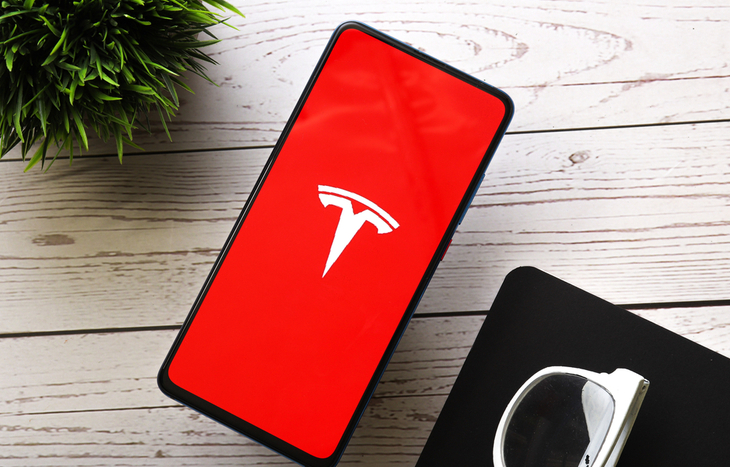
- Company overview
- Current trends
The main risks of investing in Tesla
Do you want to know how to make money from this?
Register for free and get expert advice, access to a training course and webinars.
Recently, Tesla shares fell by 12% as Elon Musk predicted a decrease in car sales in 2024. Tesla is considered by many to be a risky but promising company, which is why its shares are among the most popular in the world. Tesla reached a trillion-dollar market capitalization in 2021, becoming one of the few companies to do so. The future of the project looks promising, but, in fact, ambiguous.
This is why investors and traders should be careful when buying shares and consider the potential risks that Tesla may face in the coming years. Let’s look at the question of whether it’s worth investing in Tesla.
Car prices
Even with government subsidies such as tax credits for electric vehicles, the Tesla Model S remains unaffordable for most consumers. The Model S starts at $94,990, above the average annual income of Americans. Even the more affordable Model 3, which costs $43,990, is still too expensive for many drivers.
Decrease in gas prices
When gas prices fell in 2014 and 2015, Tesla struggled. Petrol-powered cars have become more attractive to buyers due to their lower operating costs. Oil reserves are rising and internal combustion engines are becoming more efficient, further reducing the cost of owning a gasoline car.
Tesla needs to sell many more cars to become a mass manufacturer and generate stable cash flow. However, if petroleum-based fuel remains a much cheaper alternative, consumers will be less likely to switch to electric vehicles.
The company is working to reduce the cost of its models, but this will not be an easy task. Tesla should also focus on increasing the range of its electric vehicles so they can compete with gasoline-powered products over long distances.
Increasing competition among electric vehicles
Tesla is not the first company to create electric cars, but it has become one of the most successful. Its two notable competitors, the Chevrolet Bolt and Nissan Leaf, failed to achieve early success due to high prices and limited range.
Currently, the 2022 Chevrolet Bolt, which starts at $31,000 before incentives, offers a range of 259 miles, which exceeds the 220 miles of the standard Tesla Model 3 as of October 2021. Other companies such as Mercedes-Benz, Volkswagen, Subaru, Ford and BMW are planning to enter the electric vehicle market in the next few years.
Some tech companies may also join the fray. Apple, Inc. believes it can challenge Tesla in the transportation industry, and Google has begun betting on the auto industry.
Tesla fails to recoup huge costs
Musk once said that Tesla intends to invest huge amounts of money in the production of cars and batteries. Investors often welcome high capital costs, but they want to see a return on their investment. This is especially important in a young industry where many startups fail.
Tesla has already spent billions of dollars developing the Model 3 and Model X, and its battery plant in Nevada has proven to be very expensive to maintain. In the company’s Q1 2021 report, Tesla estimated that capital expenditures will likely rise to $4.5 billion or even $6 billion annually.
Personality of the CEO
Let’s face it: Tesla is dependent on Elon Musk. This is not surprising, especially in the technology sector, where many companies depend on charismatic founders such as Steve Jobs and Apple.
However, what’s more alarming is that Musk isn’t giving Tesla his full time and attention. Musk is a very active executive who simultaneously runs several companies, including Tesla, SpaceX and SolarCity. Moreover, Tesla’s eccentric CEO has proven to be a lightning rod for many scandals. These scandals have drawn criticism from investors and the public, and they can negatively impact a company’s reputation.
Do you want to know
How to make money from the news
Register for free and get:
- Expert consultation;
- Access to the training course;
- Opportunity to participate in webinars

